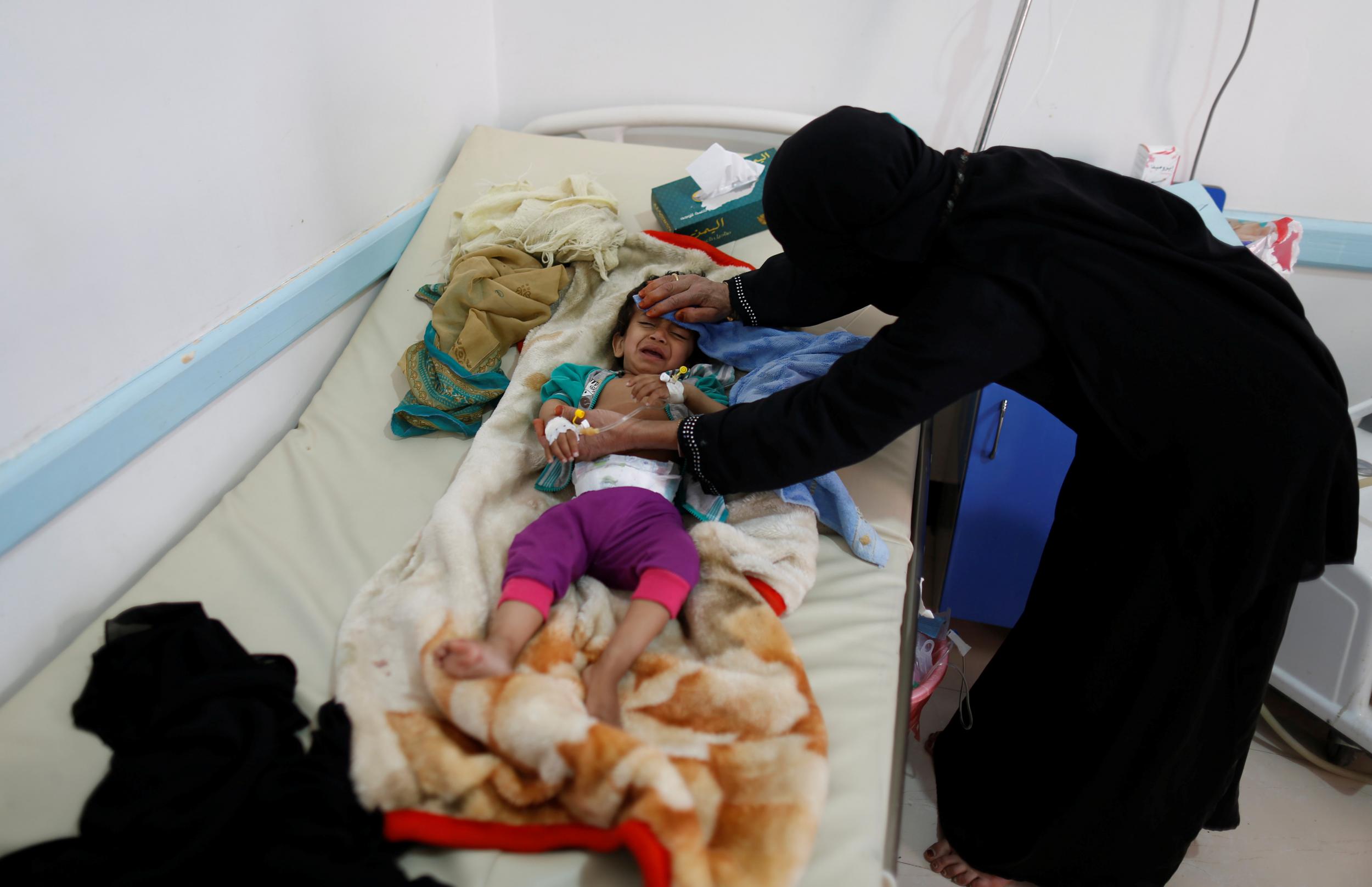Yemen cholera epidemic: 300,000 cases confirmed but vaccine plans 'on hold'
UN fears shipping of up to one million vaccine doses will be delayed or even shelved completely by precarious security situation

Your support helps us to tell the story
From reproductive rights to climate change to Big Tech, The Independent is on the ground when the story is developing. Whether it's investigating the financials of Elon Musk's pro-Trump PAC or producing our latest documentary, 'The A Word', which shines a light on the American women fighting for reproductive rights, we know how important it is to parse out the facts from the messaging.
At such a critical moment in US history, we need reporters on the ground. Your donation allows us to keep sending journalists to speak to both sides of the story.
The Independent is trusted by Americans across the entire political spectrum. And unlike many other quality news outlets, we choose not to lock Americans out of our reporting and analysis with paywalls. We believe quality journalism should be available to everyone, paid for by those who can afford it.
Your support makes all the difference.More than 300,000 people are now infected with cholera in Yemen, a burgeoning health crisis adding to the war, famine and state collapse currently facing the country.
The UN’s aid coordination agency confirmed this week there are now 313,000 cases and 1,706 deaths across Yemen’s 22 provinces since the outbreak began in March.
The International Red Cross’s director for the region, Robert Mardini, said that around 7,000 new cases a day were being diagnosed as the disease threatens to completely overwhelm Yemen’s barely functioning medical infrastructure.
While at the request of Yemen’s internationally recognised government last month the UN has prepared up to one million doses of cholera vaccines to help stem the spread of the disease, on Tuesday officials in Geneva said that the precarious security situation and logistical difficulties meant that shipments may be delayed or even shelved completely.
While easily preventable with proper sanitation procedures, after more than two years of war the country’s health, water and sanitation systems are on the verge of breaking down, making the food and water-borne epidemic very difficult to contain.
Vaccines, too, are not easy to rollout, since they require refrigeration and follow up injections.
A total of 500,000 doses are currently waiting in Djibouti to be shipped to the conflict-riven country may need to be rerouted to some African countries instead where they can be better utilised, World Health Organisation spokesperson Christian Lindmeier told reporters at a news conference on Tuesday.
Jamie McGoldrick, the Yemen chief for the UN's Office for the Coordination of Humanitarian Affairs (OCHA), said the plan to ship vaccines was designed as a “preventive intervention,” but in some cases, the impact would be “less than optimal” by the time the vaccines would arrive.
Speaking by phone to reporters, Mr McGoldrick said the trend line of cases in areas that have gotten help fighting cholera has been “stable, or (has) shown signs of decline. However, there are many areas in the country where the trend line is moving up, and those areas are, as you would imagine, the most remote” – or behind conflict lines.
Although the daily growth rate in the overall number of cases has halved to just over 2 per cent in recent weeks and the spread of the disease has slowed in the worst-hit regions, outbreaks in other areas have grown rapidly.
The most intense impact has been in areas in the west of the country which have seen recent fierce fighting.
Any shipments still need approval from Yemen’s exiled government, which is currently enlisting the help of a Saudi Arabia-led coalition to fight Shia Houthi rebels which are in control of the capital Sanaa.
Less than half of Yemen’s medical centres are still functional. A total of 14.5 million people don’t have regular access to clean water and 7.3 million are living on the brink of famine.
Saudi Arabia has effectively closed down Yemen’s air and seaports preventing the import of food and medicine, and an intense Saudi-led bombing campaign – which has in some cases targeted civilian buildings such as hospitals and funeral gatherings – has killed at least 10,000 people.
The UN estimates $2.1bn (£1.6bn) is needed to stop Yemen completely collapsing into a failed state, but donor governments only pledged half that amount at an aid conference in Geneva in April.
News agencies contributed to this report
Join our commenting forum
Join thought-provoking conversations, follow other Independent readers and see their replies
Comments